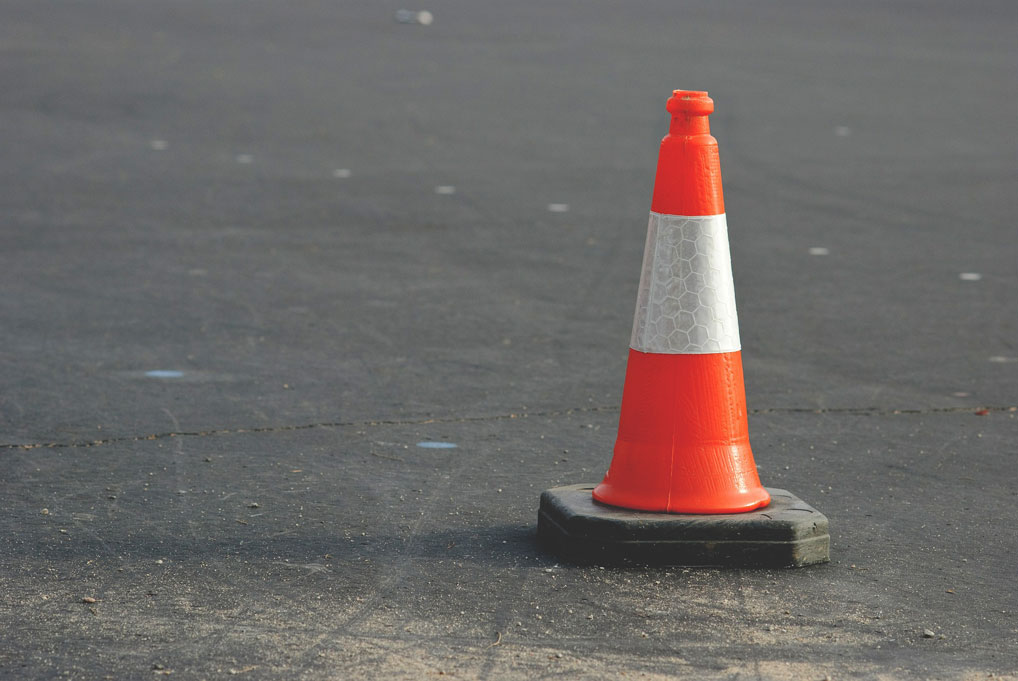Tar Snakes Concern Indiana Motorcyclists
Which is worse: an open crack in the road or a patched-up one? For Indiana motorcyclists, both are dangerous. Tar snakes took over Indiana roads this summer and presented real danger to motorcyclists. These strips of sealant snake across roads in thin black lines. For most motor vehicles, they present no danger whatsoever. You may […]

October 4, 2017

Which is worse: an open crack in the road or a patched-up one? For Indiana motorcyclists, both are dangerous.
Tar snakes took over Indiana roads this summer and presented real danger to motorcyclists. These strips of sealant snake across roads in thin black lines. For most motor vehicles, they present no danger whatsoever. You may not even feel them as your car goes over them.
But for motorcyclists, this particular type of sealant is tricky to maneuver around. Tar snakes can cause riders to lose control.
“It would be like riding and hitting a patch of ice on the road,” Kenneth Harris, ABATE officer and INDOT employee, told WISH-TV this July.
Tar Snakes: What’s the Problem?

Tar snakes are a term for crumb rubber sealant, a cheap yet resilient substance used to patch roads.
For riders, the problem is worse in hot or rainy conditions and if the tar snake is parallel to their path. Hot conditions make the tar snake soft, allowing foreign objects to stick in the sealant and potentially get in your tires. Rainy conditions make the tar snake slick.
The problem isn’t the sealant, but rather the way it’s applied, according to INDOT spokesperson Harry Maginity.
“We have to put it down at the right temperature, with the right application, don’t over apply it, because that’s what’s happening here,” Maginity told WISH-TV last month.
The Motorcycle Safety Foundation recommends a “flush-full, strike-off” method for applying the sealant. This means crews put as little tar on as possible and make sure to scrape off any excess, according to Twin Cities Pioneer Press.
Now, all INDOT applicators of crumb sealant must go through new mandatory training before they’re cleared to apply the sealant. A supervisor must also approve of the site after the sealant has been applied.
INDOT received complaints about multiple areas where tar snakes created problems this summer. After friction tests, they determined that four areas were problematic and chip sealed the affected area, covering and therefore eliminating the tar snakes.
How to Approach a Tar Snake Safely

Although INDOT is taking measures to eliminate badly applied sealant, you still may encounter tar snakes on the road. To stay safe, try to:
- Slow down
- Hit the tar snake at a perpendicular (90-degree) angle
- Resist the urge to tighten up on the motorcycle
Other Road Hazards for Motorcyclists

Tar snakes aren’t the only hazard riders should watch out for. Although potholes are an obvious example, they aren’t the most dangerous hazard. Typically, the suspension is able to absorb most of the impact. Although you may damage your bike, you’ll hopefully be able to remain upright and avoid an accident. You can also see vehicles of all kinds either swerving to avoid a pothole in front of you or jostling due to hitting the pothole, giving you time to react and hopefully avoid it.
But there are other hazards that are more dangerous and aren’t as quickly addressed as a neighborhood pothole might be. In fact, a patched pothole may in fact be the problem.
Mid-lane seams or ridges can cause riders to lose control much more easily than a pothole. Sometimes, these are created by the wear and tear of heavy trucks. Other times, however, these are created by a patched-up area of road that doesn’t extend across the entire roadway.
Loose gravel can also be dangerous for motorcyclists to encounter. Again, gravel can be caused by ongoing road construction. Unlike a pothole or a mid-lane seam, however, it may not be possible to avoid it.
To protect yourself against these types of hazards, keep a long following distance between yourself and the vehicles in front of you so you have time to react to hazards that may not affect a passenger vehicle the way it will affect you. Whatever you do, don’t brake suddenly. Slow down gradually and either avoid or proceed through the hazard safely.
Help from an Indiana Motorcycle Accident Attorney
With tar snakes and potholes and other hazards, it can be difficult to ride on Indiana roads. It’s even harder when you take into account the other vehicles on the road, some of which may not think about how to share the road with a motorcycle. Someone else’s reckless driving could cause you to lose control and crash.
If you’ve been injured in a motorcycle accident, Hensley Legal Group can help. Call us today or contact us online for a free consultation.